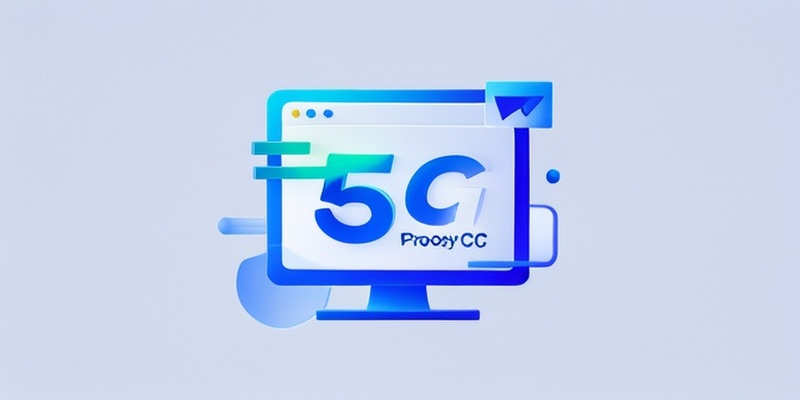How to Use 5G Mobile Proxies for Faster and More Secure Browsing

Why 5G Mobile Proxies Are a Game-Changer
If you're tired of slow internet speeds or worried about online privacy, 5G mobile proxies might be the solution you've been looking for. Unlike traditional proxies, 5G mobile proxies leverage the speed and reliability of 5G networks, offering faster and more secure browsing. Here's why they stand out:
- ? Blazing-fast speeds: 5G networks can deliver speeds up to 10Gbps, making browsing seamless.
- ? Enhanced security: Mobile IPs are less likely to be flagged, reducing the risk of bans.
- ? Geo-flexibility: Easily switch between locations to access region-locked content.
- ? Real-user appearance: Mobile IPs mimic genuine user behavior, avoiding detection.
- ? Cost-effective: No need for multiple devices; a single proxy can handle multiple tasks.
Setting Up Your 5G Mobile Proxy
Getting started with 5G mobile proxies is simpler than you might think. Here’s a step-by-step guide to help you set it up:
- Choose a reliable provider: Not all proxies are created equal. Look for providers like ProxyCC that offer dedicated 5G mobile proxies.
- Configure your device: Whether you're using a PC or mobile device, ensure your settings align with the proxy’s requirements.
- Test the connection: Always run a speed test to confirm you’re getting the promised performance.
- Optimize for your needs: Adjust settings like timeout (300ms works best for most cases) to match your browsing habits.
I remember my first attempt at setting up a proxy—I skipped the testing phase and ended up with frustratingly slow speeds. Lesson learned: always test before fully committing!
Best Practices for Secure Browsing
Using a 5G mobile proxy isn’t just about speed; it’s also about staying safe online. Here are some tips to maximize security:
- Rotate IPs regularly: This prevents websites from tracking your activity.
- Avoid suspicious sites: Even with a proxy, malware can still be a threat.
- Use HTTPS: Always ensure your connection is encrypted.
- Monitor usage: Keep an eye on data consumption to avoid unexpected charges.
One of my clients, an e-commerce business, saw a 40% drop in bot detection after switching to 5G mobile proxies. Their ad verification process became smoother, and they could access competitor data without restrictions.
Comparing 5G Mobile Proxies to Other Options
How do 5G mobile proxies stack up against other types? Let’s break it down:
| Feature | 5G Mobile Proxies | Datacenter Proxies | Residential Proxies |
|---|---|---|---|
| Speed | High (up to 10Gbps) | Medium | Low |
| Detection Risk | Low | High | Medium |
| Cost | $$ | $ | $$$ |
As you can see, 5G mobile proxies offer a sweet spot between speed, security, and cost.
Real-World Applications
From e-commerce to social media management, 5G mobile proxies are versatile. Here are some ways they’re being used:
- Ad verification: Ensure your ads are displayed correctly across regions.
- Market research: Access competitor pricing without being blocked.
- Social media automation: Manage multiple accounts without triggering bans.
A friend running a sneaker botting operation shared how switching to 5G mobile proxies increased his success rate from 20% to 70%. The difference was night and day.
Key Takeaways
- 5G mobile proxies combine speed and security for optimal browsing.
- Always test your proxy setup to avoid performance issues.
- Rotate IPs and use HTTPS to enhance security.
- They outperform datacenter and residential proxies in many scenarios.
FAQ
Q: Are 5G mobile proxies legal?
A: Yes, as long as you use them ethically and comply with local laws.
Q: Can I use them for streaming?
A: Absolutely! They’re great for accessing geo-restricted content.
Q: How often should I rotate IPs?
A: It depends on your usage, but every few hours is a good rule of thumb.







